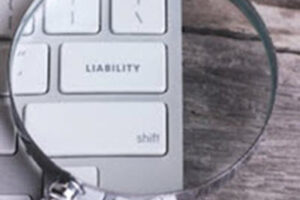Legal Theories to Bring a Product Liability Claim in New Jersey

Under New Jersey’s product liability law, you can hold one or more negligent parties liable for the damages caused by a defective product. However, negligence is not the only legal theory for product liability claims.
If you get injured by a defective or inherently dangerous product, you can pursue a product liability claim to recover damages from the product’s manufacturer, supplier, retailer, distributor, and all other parties involved in the manufacturing, selling, or distribution of that product.
In New Jersey, a product liability claim can be filed based on any of these three legal theories:
- Negligence
- Strict liability
- Breach of warranty
The negligence theory applies when the liable party causes your injury due to their negligent action or inaction. But when do the strict liability and breach of warranty theories apply?
A Product Liability Claim via Strict Liability
When filing a claim based on negligence, you must prove that the manufacturer and/or other parties in the chain of distribution did something negligently or failed to do something, which led to your injuries.
With strict liability, on the other hand, you are not required to prove negligence. Instead, you must establish these four elements:
- The defendant sold you a product that was in an unreasonably dangerous condition;
- You were expected to use the product without alterations;
- You used the product as intended; and
- The use of the product resulted in your injuries.
For instance, let’s say that you were in a car accident because your vehicle unexpectedly accelerated and hit a tree due to defective brakes. Under the negligence theory, you must prove that the manufacturer did something negligently or that their inaction caused the malfunction.
Under the strict liability theory, your product liability claim is valid as long as you can prove that the vehicle was not modified and that you used the vehicle as intended.
A Product Liability Claim via Breach of Warranty
Basically, a warranty is a guarantee. When a product is sold, the manufacturer guarantees that it will perform as they claim. If it doesn’t, the manufacturer breaches its warranty.
New Jersey law recognizes two forms of warranty when you purchase a product:
- Express warranty. Either in writing or orally, the manufacturer claims that the product will work in a certain way.
- Implied warranty. While the manufacturer does not expressly state the warranty, an average person expects this product to work in a certain way.
For example, the manufacturer of a laptop may give you an express warranty that the product will work at least five years. However, the warranty is considered breached if the laptop malfunctions in less than two years (under the condition that you used the product in a reasonably foreseeable manner).
In order to file a product liability claim under the theory of “breach of warranty,” you must establish the following five elements:
- You purchased the product from the defendant;
- The product had a warranty;
- You did not alter the product;
- The product was used as intended or as any other reasonable user would; and
- The product caused your injury.
With an express warranty, you can bring a claim only if the defect or malfunction occurs before the warranty expires. In New Jersey, a product liability claim can be filed within two years from the date of the injury-causing event.
Speak with our Morristown product liability attorney at The Law Offices of Michael P. Burakoff, P.A., to determine the applicable liability theory in your particular case. Call at 973-455-1567 to get a consultation.

